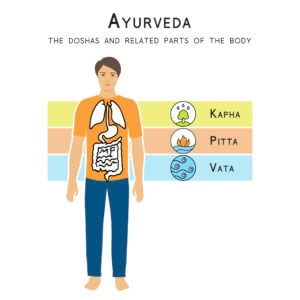The Role of Ayurveda in Enhancing Mind, Body, and Heart Link
The Role of Ayurveda in Enhancing Mind, Body, and Heart Link
Blog Article
Why You Have to Get It: The Transformative Power of Ayurveda Explained
Ayurveda, a classic system of medication, provides a distinct perspective on health and wellness that transcends mere sign monitoring. As we check out the core concepts and practices of Ayurveda, it comes to be apparent that its transformative potential expands much beyond conventional health and wellness paradigms-- increasing the concern of how it may reshape your understanding of wellness.
Understanding Ayurveda's Core Concepts
Ayurveda, typically called the "science of life," is rooted in an alternative approach to health and wellness that intertwines the physical, mental, and spiritual dimensions of wellness. Central to Ayurveda are the ideas of the five components, called "Pancha Mahabhuta," which make up planet, water, air, fire, and ether. These elements combine to create three key powers, or "doshas": Vata, Pitta, and Kapha, each representing different mixes of physical and mental qualities.


Recognizing these doshas is essential for determining an individual's one-of-a-kind constitution, or "Prakriti," which overviews personalized wellness techniques. Ayurveda highlights equilibrium, promoting for a way of living that harmonizes these energies via diet, natural remedies, and daily routines. Furthermore, Ayurvedic principles assert that health is not simply the absence of illness but a state of optimum vitality.
The practice of mindfulness and self-awareness is fundamental, encouraging people to establish a much deeper link with their bodies and the setting. By recognizing the interaction of emotional and physical factors, Ayurveda promotes an extensive understanding of wellness that equips people to take cost of their well-being, promoting a path towards alternative transformation.
Advantages of Ayurvedic Practices
On a regular basis incorporating Ayurvedic practices into day-to-day live can generate a wide variety of benefits that enhance general well-being. These time-honored customs concentrate on accomplishing consistency within the spirit, mind, and body, resulting in boosted physical health, psychological quality, and psychological equilibrium.
One significant benefit of Ayurvedic methods is their capacity to promote digestive system health and wellness. Personalized dietary referrals, based on a person's dosha, can optimize nutrition absorption and minimize intestinal concerns. Additionally, Ayurvedic natural herbs and spices, such as turmeric and ginger, possess anti-inflammatory homes that can assist in the prevention and administration of persistent diseases.
Moreover, Ayurvedic techniques stress the significance of everyday regimens, recognized as dinacharya, which foster stability and predictability in one's life. This consistency can decrease anxiety degrees and boost productivity. Mindfulness techniques, including reflection and yoga exercise, not just grow psychological strength but also improve emotional policy.
Last but not least, by promoting a connection to nature and emphasizing holistic living, Ayurveda encourages individuals to participate in self-care and cultivate a feeling of area. Overall, the integration of Ayurvedic practices can lead to an extra well balanced, vivid, and meeting life.
Trick Parts of Ayurvedic Healing
What are the essential elements that add to the efficiency of Ayurvedic recovery? At the core of Ayurveda exist three primary parts: the idea of doshas, the emphasis on balance, and the all natural strategy to health and wellness. The doshas-- Vata, Pitta, and Kapha-- represent the distinct mixes of the 5 aspects that govern individual constitutions. Recognizing one's dosha is crucial for customizing treatments that restore equilibrium and promote well-being.
Equilibrium is a repeating motif in Ayurvedic recovery, reflecting the idea that health arises from harmony within the body and in between the individual and their setting. Disruption of this equilibrium can result in condition, requiring targeted treatments to restore stability.
Furthermore, Ayurveda welcomes a holistic strategy, considering physical, psychological, and spiritual aspects of health and wellness. This thorough viewpoint identifies that emotional well-being and way of life why not check here choices considerably influence physical wellness.
Integrating Ayurveda Into Every Day Life
Incorporating the principles of Ayurveda right into day-to-day live can considerably improve total well-being and promote a much deeper link to one's body and environment. By embracing Ayurvedic techniques, people can cultivate balance and harmony within themselves, adjusting to their one-of-a-kind constitution or dosha.

Integrating organic solutions and natural components right into individual treatment regimens can further strengthen Ayurvedic concepts. For example, making use of oils for self-massage, referred to as abhyanga, promotes flow and leisure. Additionally, incorporating meditation or yoga can improve mental clearness and psychological security, promoting an all natural strategy to health.
Last but not least, being aware of environmental factors, such as climate and seasonal changes, enables people to adjust their lifestyles appropriately, making sure that their techniques stay encouraging and effective - Ayurveda. By weaving these concepts into his response day-to-day life, one can experience profound advantages, leading to a much more well balanced and satisfying presence
Individual Changes Via Ayurveda
The application of Ayurvedic principles into day-to-day routines usually leads to considerable personal transformations, as people start to experience profound shifts in both physical and psychological health. By welcoming techniques such as dietary adjustments, organic supplements, and mindful reflection, lots of report increased power degrees, improved digestion, and enhanced emotional strength.
People usually locate that the holistic strategy of Ayurveda addresses not simply signs and symptoms, however underlying imbalances within the body and mind. Taking on a customized nutritional routine based on one's dosha can lead to weight monitoring, reduced swelling, and far better total vigor. Furthermore, the unification of everyday self-care routines, such as oil drawing or Abhyanga (self-massage), fosters a deeper link to one's body, promoting self-awareness and supporting mental wellness.
As specialists dive deeper right into Ayurvedic viewpoint, they regularly uncover a restored feeling of purpose and clearness in their lives. This transformative journey motivates people to grow mindfulness, bring about healthier relationships and a greater admiration for the here and now moment. Inevitably, Ayurveda empowers people to take cost of their health and wellness, helping with a long lasting and significant improvement in their lives.
Verdict
The transformative power of Ayurveda hinges on its all natural approach, promoting harmony among body, spirit, and mind. By implementing and identifying specific doshas customized techniques, Ayurveda fosters ideal health and emotional resilience. Its assimilation into day-to-day live urges mindful living and click this much deeper links within areas. Inevitably, accepting Ayurveda can lead to extensive individual makeovers, boosting total health and promoting a much more well balanced and unified existence. The principles of Ayurveda use beneficial insights for cultivating a satisfying and vivid life.
As we check out the core concepts and methods of Ayurveda, it ends up being apparent that its transformative potential extends far beyond typical health standards-- raising the inquiry of how it might reshape your understanding of wellness.
Ayurveda, typically defined as the "scientific research of life," is rooted in a holistic strategy to health that intertwines the physical, psychological, and spiritual measurements of well-being. At the core of Ayurveda exist 3 main components: the principle of doshas, the emphasis on equilibrium, and the all natural strategy to health and wellness. Inevitably, Ayurveda empowers people to take charge of their health and wellness, assisting in a lasting and significant makeover in their lives.
By applying and acknowledging private doshas tailored practices, Ayurveda promotes optimum wellness and psychological resilience.
Report this page